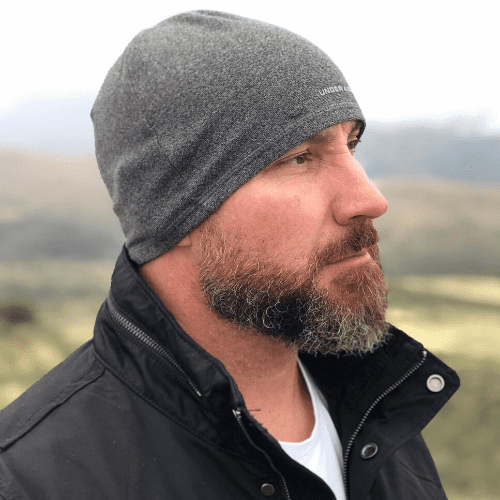Searching for help with drug and/or alcohol addiction? Call us now at (800) 643-2108.
Your recovery will not happen in a vacuum. If you keep doing the same things you’ve always done, you will keep seeing the same results you’ve always seen.
Part of the importance of attaining brotherhood and mentorship in your recovery is that it takes your progress out of the realm of your isolated mind and shares it with others who want to help you succeed.
Join a Fellowship, Like in the Lord of the Rings
A fellowship is, simply put, a support group you join as part of your recovery. You’ve probably heard of some more notable fellowships, like Alcoholics Anonymous (AA) and Narcotics Anonymous (NA).
People join these programs because they offer the social support you can’t create on your own, no matter how strong your willpower.
There’s no weakness in leaning on others–in fact, building relationships with people who share your commitments is one of the most valuable things you can do for yourself.
Not only will your peers hold you accountable for your sobriety, but they’ll provide you with friendship and help you spend your time in ways that build meaningful enjoyment, not dependent on drugs or alcohol.
Remember the first Lord of the Rings movie scene where the Fellowship offers their strengths to the mission at hand? Think of it like that.
One peer might be Gimli, offering you his ax in the form of sturdy emotional support and bolstering conviction when you struggle with temptation.
Another peer might be your Gandalf, providing seemingly-magical new pursuits for you to discover, like music or art, which can help you move away from associating your recreation with substance abuse.
When it comes to moving past addiction, sharing your experience and your path forward with others helps lighten the load of moving through a world that can often be challenging to your resolutions.
When walking past a bar or another spot that you used to frequent brings up difficult memories, having a group of peers who can relate to your experience and offer encouragement can be truly priceless.
Sponsorship: Find Your Sobriety Sensei
If joining a fellowship is the equivalent of embarking on a mission with a team of peers, finding a sponsor is taking on a mentor who’ll lead the way.
A sponsor is someone who has gone through experiences that relate to yours, emerged sober and strong, and stayed that way. They’ll be able to understand and recognize your addictive behaviors or tendencies, help you recognize them yourself, and hold you accountable for your resolutions to break free from addiction.
Your sponsor is your guiding light and is there to counsel you as you navigate the changes that will accompany your recovery. They’ll act as a friendly ear for the difficulties you’ll face, and they’ll provide you with personal support that is more specific to you as a person than what you might find in a fellowship.
A fellowship is important for your normal recovery process, and a sponsor goes to the next level to address your development on a more personal level.
What Should I Look for in a Sponsor?
Typically a sponsor has been sober for at least a year. If you’re looking to connect with a sponsor at a program like AA or NA, they’re usually senior members who are used to the ebb and flow of recovery.
Remember, though, that your recovery is ultimately up to you. A sponsor is a resource and an important relationship for you, but they can’t singlehandedly change the course of your life.
They will not employ you, act as a long-term psychological therapist, or help you meet a romantic partner. Think of your sponsor as your coach on the field of sobriety. They’ll treat you with respect and help you meet your goals.
A good sponsor will push you to succeed in recovery and in your life. They’ll encourage you to make good decisions, help guide you through treatment programs or paths you may be following, and act as a confidant and friend with your best interests at heart.
Explore Your Options for Social Support
When planning to build a recovery-positive social support system for your new path forward, it’s important to consider many options.
What decision would you want to be able to look back on making? Entering a treatment program with your peers can act as a direct approach to addressing your issues from all sides.
Treatment centers specialize in fostering mental, physical, and social health, preparing you for the rest of your life in successful sobriety, and helping you form new and lasting relationships with people who can stand by you in the short and long term of your recovery.
Are you Ready to Get Help and Start recovery?
Although walking the path of recovery is never easy, you don’t have to walk it alone. At Cornerstone Healing Center in Scottsdale, Arizona, we see the daily positive impact of brotherhood and social support.
Spending time in a dedicated treatment program alongside your peers will help you fortify your determination to make it through this part of your life and develop a strong sense of who you are and where you want to go.
Working with a group of people in it together helps to imbue you with a purpose that will carry you through the milestone first year of recovery and beyond.
Our professional staff at Cornerstone also understand the value of having a sponsor who you can trust to keep your best interests at heart, and we work to connect you with people who know what you’re going through.
People foster relationships that last a lifetime by beginning at Cornerstone. Call 888-202-8351 to learn more about the support structure we build here.







